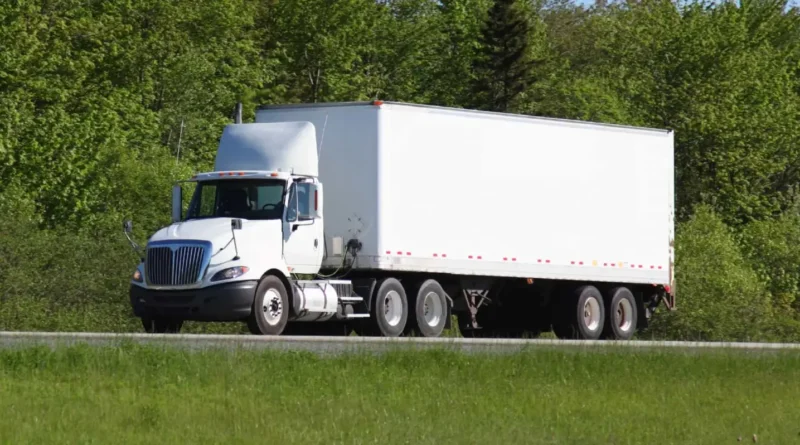The Importance of Commercial Trucks in Today’s Economy
Commercial trucks play a pivotal role in the global economy by facilitating the transportation of goods across vast distances. From local deliveries to international freight, these vehicles are essential to the functioning of numerous industries. In this article, we’ll explore the importance of commercial trucks, the types of trucks available, and their contributions to various sectors.
What Are Commercial Trucks?
Commercial trucks are large vehicles used for the transportation of goods, cargo, or materials in bulk. Unlike personal vehicles, commercial trucks are built for heavy-duty operations, designed to handle significant weight and cover long distances. These trucks come in a range of models, each suited for specific tasks such as cargo hauling, transporting perishable goods, or even providing specialized services.
Types of Commercial Trucks
The commercial truck industry is diverse, with several types of vehicles tailored for different types of cargo and operations. Below are some of the most common types:
1. Light-Duty Trucks
These trucks are typically used for local deliveries and short-distance hauling. Light-duty commercial trucks are often vans, pickups, or small box trucks. They’re ideal for businesses like courier services, moving companies, and trades that require frequent, small-scale shipments.
2. Medium-Duty Trucks
Medium-duty trucks are used for transporting heavier loads over longer distances. These vehicles are commonly used in construction, retail, and distribution industries. Examples include straight trucks and smaller flatbeds, which can carry a wide range of materials and products.
3. Heavy-Duty Trucks
Heavy-duty commercial trucks are built for transporting large volumes of goods or extremely heavy materials. These trucks include tractor-trailers, semi-trucks, and dump trucks. They are essential in industries such as construction, mining, and long-haul freight transportation.
4. Refrigerated Trucks (Reefers)
Refrigerated trucks, also known as reefers, are equipped with temperature-controlled compartments to transport perishable goods. These vehicles are vital in industries like food distribution, pharmaceuticals, and chemicals, ensuring that temperature-sensitive products are kept in optimal conditions throughout the delivery process.
5. Tank Trucks
Tank trucks are designed for the transportation of liquids and gases. These trucks are used to carry products like fuel, chemicals, water, and other liquids that require secure and efficient transport. Tank trucks are widely used in the petroleum and chemical industries.
6. Flatbed Trucks
Flatbed trucks are versatile and can carry oversized loads or equipment that doesn’t fit in enclosed vehicles. They are commonly used in construction and manufacturing industries to transport building materials, machinery, and heavy equipment.
The Role of Commercial Trucks in Various Industries
Commercial trucks are essential to the success of many industries. They enable businesses to transport goods, materials, and products to and from various locations. Here’s how commercial trucks contribute to different sectors:
1. Retail and E-Commerce
With the rapid growth of online shopping, commercial trucks are crucial for the delivery of products to customers. Retailers rely on commercial trucks to deliver goods to stores, warehouses, and, more recently, directly to consumers. The flexibility of different truck types ensures that products are delivered on time and in good condition, whether it’s for small e-commerce orders or large bulk shipments.
2. Construction
In the construction industry, heavy-duty commercial trucks are used to transport raw materials such as concrete, asphalt, and steel. Additionally, flatbed trucks and dump trucks are crucial for delivering construction equipment and removing debris. Without commercial trucks, construction sites would experience significant delays and inefficiencies.
3. Agriculture
Commercial trucks play a critical role in moving agricultural products from farms to processing plants or markets. Refrigerated trucks are especially important in this sector, as they are used to transport perishable goods like fruits, vegetables, and dairy products. These trucks ensure that food remains fresh and safe for consumption as it travels across distances.
4. Manufacturing
Manufacturers depend on commercial trucks to deliver raw materials to factories and transport finished products to distribution centers and retail locations. Trucks are also used to carry components between production plants, ensuring that goods are continuously moving through the supply chain.
5. Healthcare
In the healthcare sector, commercial trucks are responsible for transporting medical supplies, including equipment, medications, and vaccines. Specialized trucks, like refrigerated ones, are used to maintain the required temperature for sensitive products. Additionally, armored trucks are used to transport high-value or sensitive medical items.
6. Fuel and Chemical Transport
The fuel, oil, and chemical industries rely on commercial trucks to transport essential products like gasoline, diesel, and chemicals. Tank trucks, in particular, are designed to safely carry these liquids and ensure compliance with strict regulations for hazardous materials.
The Advancements in Commercial Truck Technology
As the world of logistics continues to evolve, so do the commercial trucks that keep the industry moving. Modern trucks are now equipped with advanced technology to improve efficiency, safety, and environmental impact. Here are some of the most notable advancements:
1. Fuel Efficiency
Modern commercial trucks are built with fuel efficiency in mind. Innovations such as hybrid and electric trucks are beginning to make their way into the industry, promising lower emissions and reduced operating costs. Additionally, fuel-efficient engines and aerodynamics have made it possible for trucks to consume less fuel, which benefits both businesses and the environment.
2. Telematics and GPS Tracking
Commercial trucks now come equipped with telematics systems that provide real-time data on fuel consumption, location, speed, and vehicle health. GPS tracking allows businesses to optimize routes, reduce fuel costs, and monitor the performance of their fleets. Additionally, telematics help companies provide customers with accurate delivery times and improve overall service.
3. Autonomous Vehicles
While still in the experimental stages, autonomous commercial trucks are expected to revolutionize the logistics industry. These self-driving trucks have the potential to reduce labor costs, improve efficiency, and enhance safety by eliminating human error. As technology advances, autonomous trucks may become more common on highways and freight routes.
4. Safety Features
Commercial trucks are now equipped with advanced safety features such as lane departure warning systems, collision mitigation, automated braking, and blind-spot monitoring. These safety technologies help prevent accidents, protect drivers, and ensure the safe transportation of goods.
Conclusion
Commercial trucks are indispensable to the modern economy, facilitating the movement of goods and materials across industries. From light-duty vans for local deliveries to heavy-duty trucks for long-haul transport, these vehicles play a vital role in the global supply chain. As technology continues to advance, the trucking industry will continue to evolve, providing businesses with more efficient, safer, and environmentally friendly options for transporting goods. Whether for small deliveries or large freight, commercial trucks will remain the backbone of global trade and commerce for years to come.




